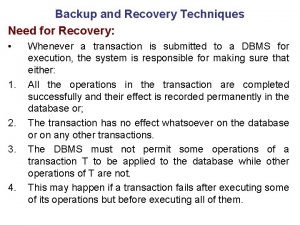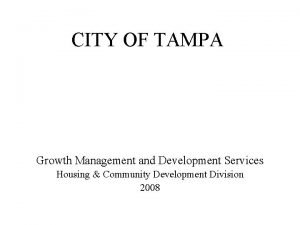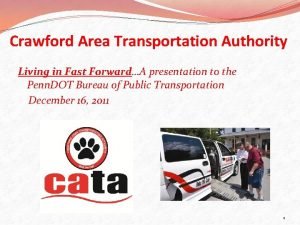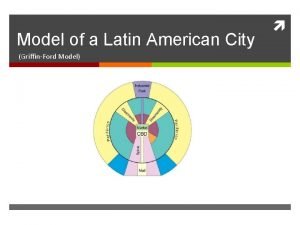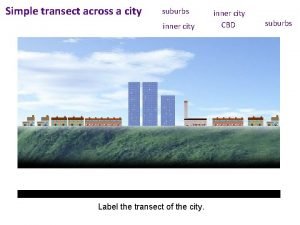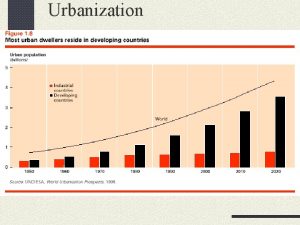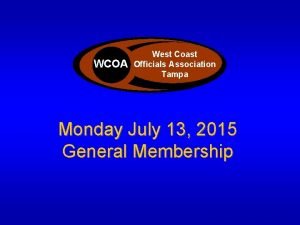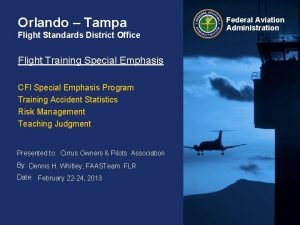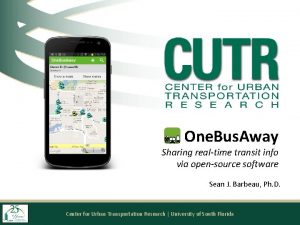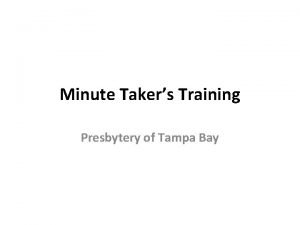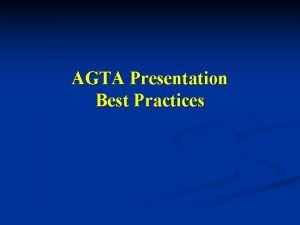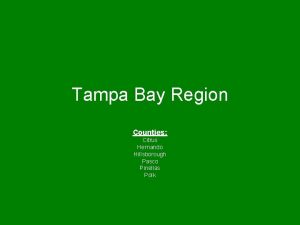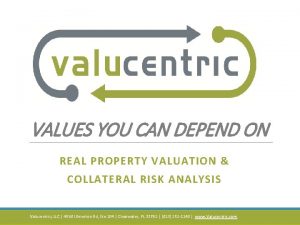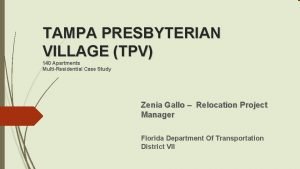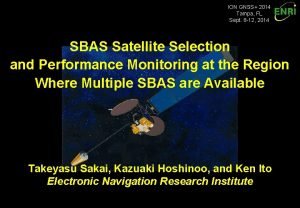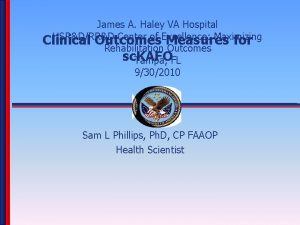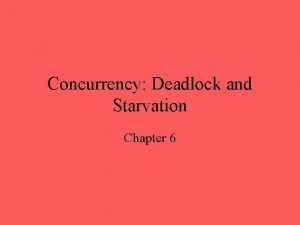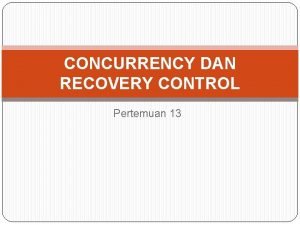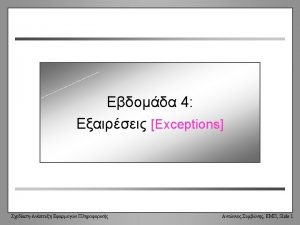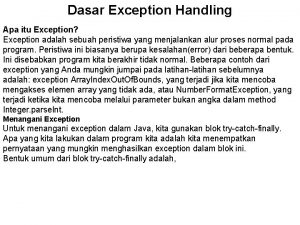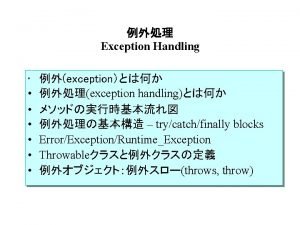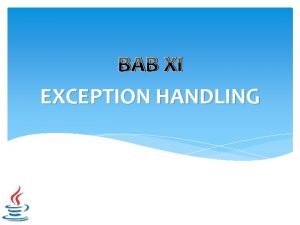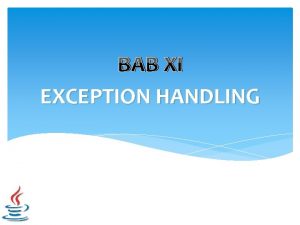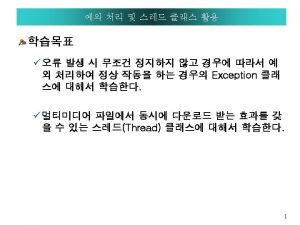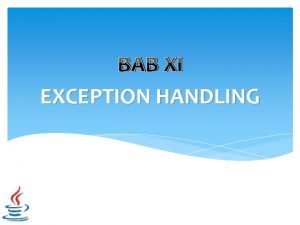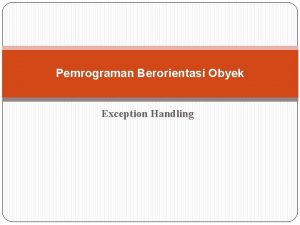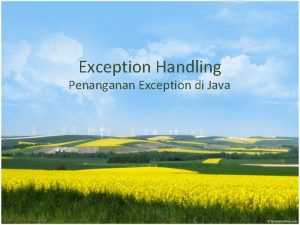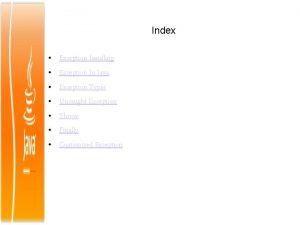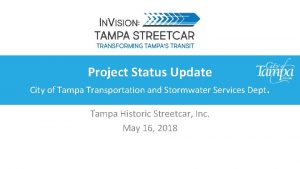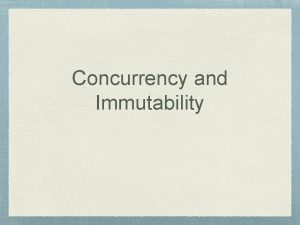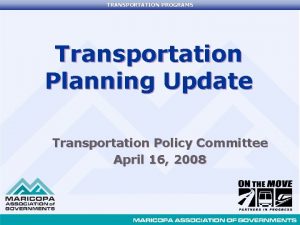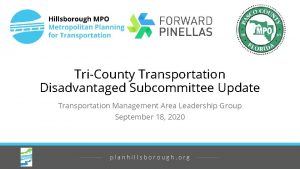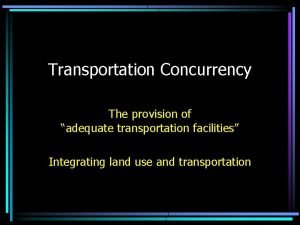City of Tampa Transportation Concurrency Exception Area Update





































- Slides: 37

City of Tampa Transportation Concurrency Exception Area Update Tampa Bay Applications Group August 21, 2008

Presentation Overview Background & TCEA Update Objectives n Data & Analysis n Policy Approach n

Background & Objectives Concurrency n Concurrency Exception Areas n – Rationale – Risks/Issues Tampa’s TCEA (1998 – 2008) n TCEA Update Objectives n

Concurrency - Definition n Adequate public facilities must be in place at the time development impacts occur. – LOS Standards Adopted by local government (except SIS/TRIP)

Concurrency - Definition n Adequate public facilities must be in place at the time development impacts occur. – Oh Brother! n 3 years – old school concurrency n 5 years – proportionate fair share n 10 or even 15 years – long term CMS n Never – improvements which “significantly benefit the impacted transportation system”

n Seems Reasonable… Except: – Roads aren’t sewers Health, Safety, & Welfare Quality of Life

Transportation Concurrency Exception Area n Another way to say it: – Countervailing planning and public policy goals may come into conflict with the requirement that adequate public [transportation] facilities and services be available concurrent with the impacts of development.

What’s a Countervailing Goal? Revenue New Development Capital and Operating

Countervailing Goals… n Constrained Roads – Cost – Livability Create Multimodal “Habitat” n Apply Latent Infrastructure n – Utilities – Schools – Parks n Operations Preserve Greenspace/Sustainability

Concerns/Risks n Impact to SIS/Regional Transportation System and Economy – Dynamic equilibrium or Malthusian dilemma? – In the valley… Transit/Multimodal Supportive Density Roadway Network Carrying Capacity Time

Concerns/Risks Development not paying fair share n Development getting out of hand n

Tampa TCEA 1998 - 2008 Evolution of Areawide DRIs & 1985 Comprehensive Plan (Tiered LOS) n Concern over FIHS Facilities n Pay (Impact Fee) and Go! n Endeavor to Persevere! n – Encourage, promote, etc…

Tampa TCEA 1998 - 2008 n Criticisms – Impact to low density neighborhoods – Does not do enough to focus growth – Lack or clear mass transit plan – Gandy Boulevard…

TCEA Update Objectives n Provide Mechanisms to Focus Growth n Statutory Requirements – – Justify size and area Document multimodal mobility options Document SIS impacts/mitigation strategies Develop policy linkage between urban form, mobility plan, and concurrency exemptions

Data and Analysis – Justify size and area – Document multimodal mobility options – Document SIS impacts/mitigation strategies

Size and Area n Florida Administrative Code 9 J-5. 0055 – Less Than 10% Vacant Land – At Least 5 Dwelling Units / Gross Residentially Developed Acre n Compared to Hillsborough Urban Services Boundary (2000 TBRPM Z Data) – 15% of Acreage – 33% of Dwelling Units – 50% of Employment

SIS Impacts n SIS Demand Select Zone Assignment – 40% E : E – 49% E : I – 11% I : I n (Trips Pass Through TCEA) (One Trip-End in TCEA) (Both Trip-Ends in TCEA) Plan to Mitigate – Make Surface Street Traffic Ops and Capacity Improvements (where cost feasible) – Concentrate new development within existing business centers or along “Primary” transit corridors – Encourage Development Within Urban Services Boundary

Overall Roadway Conditions 2005 2015 2025

Mobility Options/Needs n n No Specific Guidance for TCEAs Used Multimodal Transportation District (MMTD) Measures – – – – – Appropriate Scale of Development Complementary Mix of Uses Land Uses Promoting Multimodal Usage Acceptable Separation of Land Uses Appropriate Density and Intensity of Use Appropriate Organization of Land Uses Regional Intermodal Connectivity Interconnected Multimodal Network Acceptable Level of Service for Each Mode Acceptable Areawide Quality of Service for Each Mode

Organization of Land Uses (With Respect to Transit) n 85 % of Dwelling Units & 91% of Employees Served by Transit

Interconnected Network Average of 100 Blocks/Square Mile n 50 Blocks/Mile is Adequate n River & Interstates Are Main Connectivity Breaks n

Areawide Q/LOS n n Level of Service x Population Served For Transit Acceptable Q/LOS is: – LOS “C” for 70% of Jobs and Population n For Current Transit Service & Year 2000 ZData LOS “C” Service Applies to: – 37% of Employees – 17% of Dwelling Units

Needs: n n n HART Transit Emphasis Corridor Plan (or Similar Investment) $125 - $200 m over 20 years $1500 - $4000 per new Unit of Development

Policy Approach n Comprehensive Plan Policies Enable Variation in Sub-Area Review and Mitigation Procedures n Sub-Area Policies Consider: – – – n Magnitude of Project Impacts Planned Mass Transit System Urban Form Standards Procedural Details to be Established in Land Development Code

n Downtown Revitalization – Downtown & Channel District CRAs – Downtown Areawide DRI

n n Downtown Revitalization Urban Redevelopment – – – Westshore DRI TIA Drew Park CRA USF Heights, Central Park, Ybor CRAs – Port Authority

n n n Downtown Revitalization Urban Redevelopment Mixed-Use Corridor Villages – Major Commercial Corridors – Concurrency Exemption Dependent on Cost Affordable Transit Plan

n n n Downtown Revitalization Urban Redevelopment Urban Infill – Remainder South of Fletcher

Review and Mitigation Framework Roadway Mitigation Requirements Downtown Core n Redev. Area Mixed-Use Corridor Infill Area All Development Required to: – Be Consistent with Comprehensive Plan – Mitigate Site Traffic Impacts – Pay Standard Assessment (i. e. Impact Fee) Outside TCEA

Roadway Mitigation Requirements 1 Downtown Core 1 n Redev. Area Mixed-Use Corridor Exempt from Roadway Mitigation if; – Consistent with Urban Form/Code Infill Area Outside TCEA

Roadway Mitigation Requirements 2 Downtown Core 2 n Redev. Area Mixed-Use Corridor Infill Area Outside TCEA Exempt from Roadway Mitigation if; – – – Consistent with Urban Form/Code Served by Planned Mass Transit Infrastructure Large Project Site Impacts (Potentially Extending to Adjacent Signals) are Addressed

3 Roadway Mitigation Requirements Downtown Core 3 n Redev. Area Mixed-Use Corridor Infill Area Outside TCEA Exempt from Roadway Mitigation if; – – – Consistent with Urban Form/Code Served by Planned Mass Transit Infrastructure Large Project Site Impacts (Potentially Extending to Adjacent Signals) are Addressed – Neighborhood Traffic Impacts Mitigated

4 Roadway Mitigation Requirements Downtown Core 4 n Redev. Area Mixed-Use Corridor Infill Area Exempt from Roadway Mitigation if – Roadway System Impacts are De Minimus – Moderate and Large Projects Must Offset Impacts: n n n Construct Improvements Proportionate Fair Share and/or Neighborhood Traffic Management Outside TCEA

5 Roadway Mitigation Requirements Downtown Core 5 n Redev. Area Mixed-Use Corridor Infill Area Outside TCEA Not Exempt from Concurrency; – However, Most Development Vested by Prior Dev Orders – Any New Development Agreements Should n n Restore Cost Affordable LOS Standard Prop Share at City’s Discretion

Land Development Code Concepts: Mass Transit Service Area n Alternative LOS Measures n – Cut-line or sub-area system performance – Duration of Congestion n Neighborhood Mitigation – Traffic Calming – Bike & Pedestrian Facilities n Implement TOD/TND Form-Based Code

Infrastructure Planning: Update Transportation Impact Fee n Identify Roadway/Intersection Improvements n – Impact Fee Project List – Remaining Projects Eligible for PFS n Coordinate w/ HART for “Primary” Transit Corridor network

Contact: Jean Dorzback, P. E. Transportation Planning Chief City of Tampa, Transportation Division Jean. dorzback@tampagov. net Demian Miller, AICP Sr. Project Manager Tindale Oliver & Assoc. Inc dmiller@tindaleoliver. com
 ........ is an alternative of log based recovery.
........ is an alternative of log based recovery. City of tampa development services
City of tampa development services Routing area update
Routing area update Crawford area transportation authority
Crawford area transportation authority Who made the latin american city model
Who made the latin american city model Inner city suburbs
Inner city suburbs Primate cities
Primate cities West coast officials association
West coast officials association Enloe flight school
Enloe flight school Tiffany tampa reviews
Tiffany tampa reviews Fdot tampa hillsborough expressway authority
Fdot tampa hillsborough expressway authority Flight standards district offices
Flight standards district offices One goal conference
One goal conference Onebusaway tampa
Onebusaway tampa Tampa bay presbytery
Tampa bay presbytery Uma caixa alienigena com o numero 25 gravado na tampa
Uma caixa alienigena com o numero 25 gravado na tampa Super shuttle tpa
Super shuttle tpa Tampa expressway authority
Tampa expressway authority Tampa first sda church
Tampa first sda church Vida nueva tampa bay
Vida nueva tampa bay Value centric appraisals
Value centric appraisals Tampa presbyterian village
Tampa presbyterian village Ion electric tampa
Ion electric tampa Okta utampa
Okta utampa Vabcdef
Vabcdef James a haley pharmacy
James a haley pharmacy Tampa bay times nie
Tampa bay times nie Tampa bay times nie
Tampa bay times nie Pyramda
Pyramda Points of concurrency in a triangle
Points of concurrency in a triangle Point of concurrency
Point of concurrency Concurrency in web applications
Concurrency in web applications Incenter conjecture
Incenter conjecture Pessimistic concurrency control
Pessimistic concurrency control Ue4 udp messaging
Ue4 udp messaging Unix concurrency mechanisms
Unix concurrency mechanisms Concurrency control adalah
Concurrency control adalah Concurrency control mechanism
Concurrency control mechanism
